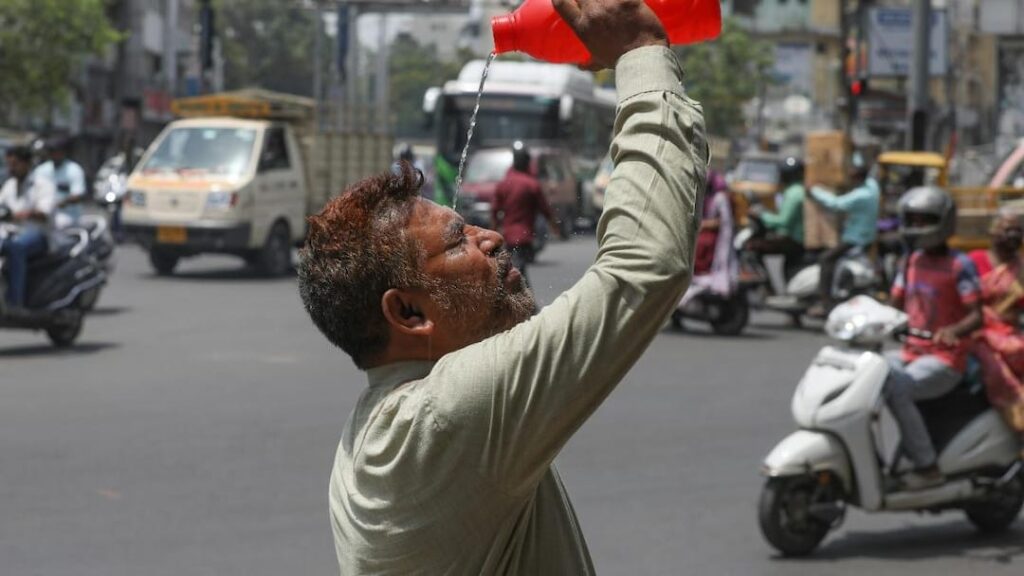Weather Update: Pune Swelters Under Heatwave Conditions as Temperature Soars

Weather Report : Mercury Set to Soar in Central Maharashtra, Rain Relief in Sight for Vidarbha
Pune, Maharashtra: The city of Pune is experiencing heatwave-like conditions as temperatures soar above normal levels, prompting concerns among residents and authorities. The Shivajinagar area recorded a high of 38.8°C, while Lavale reached a scorching 40.9°C, exacerbating discomfort for citizens.
The Pune Municipal Corporation (PMC) has issued a health advisory to citizens, urging precautionary measures as temperatures continue to rise. According to the India Meteorological Department (IMD), maximum temperatures in various parts of Pune, including Pashan, Lohegaon, and Magarpatta, have exceeded normal levels. Lavale stands out as the area with the highest recorded temperature, hitting 40.9°C.
Nighttime temperatures have also been higher than usual, with Shivajinagar recording a minimum of 18.6°C, indicating warmer nights for residents. Rising humidity(RH) levels during nighttime have added to the discomfort, further exacerbating the heatwave-like conditions in the city. The RH level is higher during night-time, resulting in uncomfortable weather. As per the data, the RH was recorded as 27% in Shivajinagar during day-time on March 26. Whereas during night-time, it was recorded as 58%. Compared to March 25 when the RH level was recorded as 55% during night-time, the RH level increased by 3% on March 26.
The IMD forecasts above-normal temperatures in Maharashtra due to active El Nino conditions, with the second half of March witnessing a significant rise in both minimum and maximum temperatures. While no active weather systems are currently present over Maharashtra, the influence of a trough line between Vidarbha and south interior Karnataka, along with an approaching western disturbance expected to affect north India, may contribute to heightened moisture levels and hotter weather conditions.
In response to these climate challenges, academic institutions like the Symbiosis School of Economics and the Symbiosis Centre for Urban Studies have been proactive in addressing climate change issues. Recently, an interactive session on ‘local action for climate change in Pune city’ highlighted the importance of citizen participation in urban governance and the need for collaborative efforts to build city resilience against climate stressors.
As Pune grapples with rising temperatures, concerted efforts by authorities, citizens, and academic institutions become crucial in mitigating the adverse effects of climate change and ensuring the well-being of the city’s residents.









